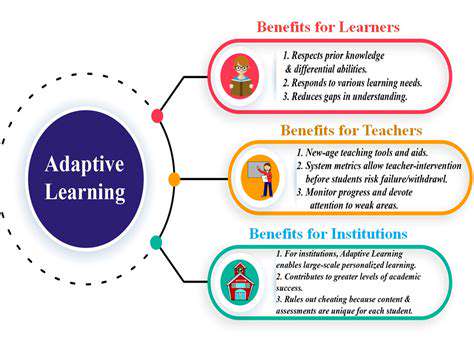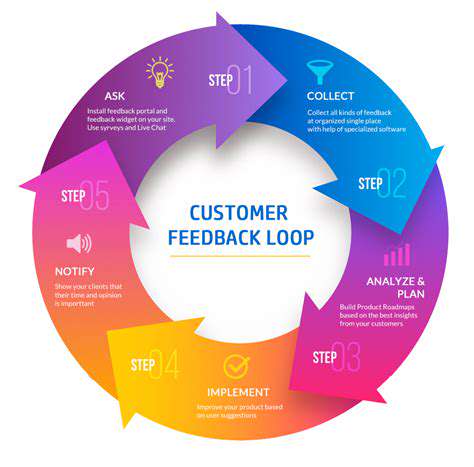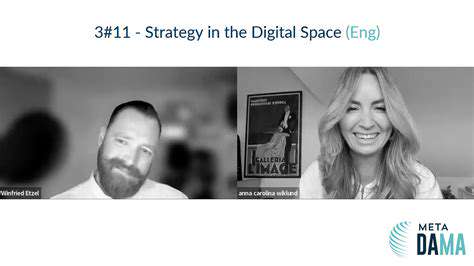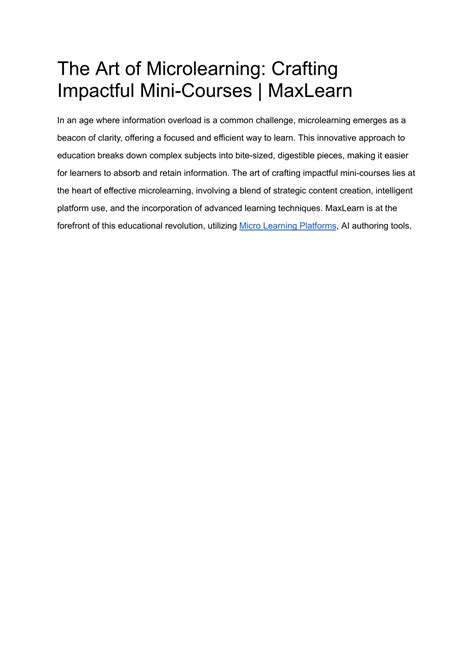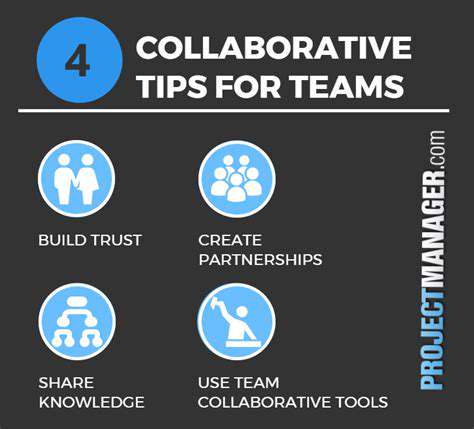Hiring a Digital Marketing Team: Key Roles

Lead SEO Specialist
The Lead SEO Specialist is responsible for overseeing the overall SEO strategy and ensuring its alignment with the company's business objectives. This individual will be deeply involved in keyword research, competitor analysis, and the development of comprehensive SEO plans. They will also mentor and guide junior SEO specialists, fostering a collaborative and knowledgeable team environment. A strong understanding of technical SEO, content optimization, and link building is critical for this role.
This position requires a proven track record of success in driving significant organic traffic growth and a deep understanding of search engine algorithms. Experience with various SEO tools and platforms is also essential.
Senior SEO Specialist
Senior SEO Specialists are key members of the team, responsible for executing the SEO strategies developed by the Lead Specialist. This includes on-page optimization, technical SEO audits, and content strategy implementation. Their responsibilities also encompass tracking and reporting on SEO performance, providing data-driven insights to inform optimization decisions, and collaborating with content creators to ensure high-quality, SEO-friendly content.
Junior SEO Specialist
Junior SEO Specialists provide valuable support to the team, assisting with tasks such as keyword research, on-page optimization, and content analysis. They work closely with Senior Specialists, learning best practices and gaining practical experience in the field. Developing a strong understanding of SEO principles and the ability to learn quickly are crucial for this role. This position is ideal for recent graduates or individuals with a passion for SEO and a desire to advance their career in the digital marketing field.
This role offers a fantastic opportunity to gain hands-on experience and build a solid foundation in SEO.
Content Optimization Specialist
The Content Optimization Specialist focuses on optimizing existing content for improved search engine visibility. This involves identifying areas for improvement, suggesting keyword integration strategies, and ensuring content is engaging and informative for both users and search engines. Strong writing and editing skills are essential, along with a deep understanding of SEO best practices for content creation. This role requires a knack for identifying content gaps and opportunities for improvement to enhance overall SEO performance.
Technical SEO Specialist
The Technical SEO Specialist is responsible for ensuring the website's technical aspects align with best practices for search engine crawlability and indexing. This includes auditing website architecture, analyzing site speed, and implementing technical SEO solutions. A deep understanding of website architecture, crawlability, and indexing is essential for this role. Experience with tools and technologies used for website analysis, such as Google Search Console and various SEO auditing tools, is highly valued.
Link Building Specialist
The Link Building Specialist focuses on acquiring high-quality backlinks from reputable websites. This involves outreach to relevant websites, building relationships with influencers, and participating in industry events to enhance the website's authority and visibility in search results. Developing and implementing a comprehensive link building strategy is paramount for success in this role. A strong understanding of link building best practices and ethical link acquisition strategies is crucial. This role also requires excellent communication and relationship-building skills.
Social Media SEO Specialist
The Social Media SEO Specialist is responsible for integrating social media strategies with SEO efforts. This includes identifying relevant social media platforms for the target audience, creating engaging content, and optimizing social media profiles to enhance visibility. This position requires a strong understanding of social media algorithms and best practices, along with proficiency in various social media platforms. The ability to leverage social media to drive traffic to the website and increase brand awareness is key to success.
Social Media Managers and Paid Advertising Experts

Social Media Management Strategies for Paid Advertising Campaigns
Social media managers play a crucial role in crafting and executing successful paid advertising campaigns. A strong understanding of platform-specific algorithms and audience targeting is essential for maximizing ROI. This involves meticulous research to identify the most effective keywords, hashtags, and ad formats for each platform. Understanding the nuances of each platform's advertising policies and best practices is paramount to avoid costly mistakes and ensure campaign compliance.
Effective social media management involves more than just creating visually appealing ads. It necessitates a deep dive into audience demographics, interests, and behaviors. This data-driven approach enables the creation of targeted campaigns that resonate with the intended audience and achieve optimal engagement. Careful monitoring of campaign performance metrics and a willingness to adapt strategies based on real-time data are critical to continuous improvement and achieving the desired outcomes.
Paid Advertising Platforms and Their Strengths
Various platforms offer diverse advertising options, each with its own strengths and weaknesses. Facebook, with its extensive user base and sophisticated targeting tools, remains a popular choice for reaching broad audiences. Instagram, known for its visually-driven approach, is well-suited for showcasing products and building brand awareness. Twitter, with its real-time nature and focus on conversations, provides a unique opportunity for engaging with a highly active community. LinkedIn, oriented towards professionals, is an effective platform for targeting specific industries and driving B2B leads.
Understanding the unique capabilities of each platform is key to developing a comprehensive social media advertising strategy. Careful consideration of budget allocation across different platforms is also vital. Different platforms will require varying ad spend for comparable results. A well-defined strategy will ensure that budget allocation aligns with the specific goals and target audience for each platform.
Optimizing Social Media Advertising for Conversions
Driving conversions is a critical aspect of any paid advertising campaign. This requires a clear understanding of the desired outcome, whether it's website traffic, lead generation, or sales. Defining specific, measurable, achievable, relevant, and time-bound (SMART) goals is the foundation for creating a successful strategy. Crafting compelling ad copy and incorporating clear calls to action are crucial for motivating users to take the desired action. A/B testing different ad creatives and targeting options is essential for identifying the most effective approaches.
Monitoring key metrics like click-through rates (CTR), conversion rates, and cost per acquisition (CPA) is essential for evaluating campaign performance. Analyzing these data points allows for adjustments to ad copy, targeting, and bidding strategies to optimize for better results. By continuously evaluating and refining the strategy, social media managers can drive maximum return on investment for paid advertising campaigns.
Beyond the Core: Web Developers and Graphic Designers
Collaboration and Communication
Effective teamwork between web developers and graphic designers is crucial for successful digital marketing campaigns. This collaboration isn't just about handing over files; it's about understanding the overall marketing strategy and how visual elements contribute to achieving specific goals. A developer who understands the brand's visual identity and a designer who comprehends the technical limitations and possibilities of the platform create a synergy that elevates the final product. Open communication channels, regular feedback sessions, and a shared understanding of project timelines are vital for a smooth workflow and prevent costly revisions later on.
A clear understanding of the target audience and the desired impact of the design is essential for both roles. The graphic designer should be able to articulate the reasoning behind their choices, and the developer should be able to translate those choices into a functional and accessible web experience. This collaborative environment fosters a deeper understanding of the project's objectives, ultimately leading to a more refined and effective final product.
Technical Proficiency in Design
While graphic designers are often focused on the aesthetic, a foundational understanding of web development principles can significantly enhance their work. Knowing how different design elements will translate into code allows for more efficient and effective communication with developers. This includes a basic understanding of responsive design principles, accessibility guidelines, and the importance of file optimization for website performance. This knowledge empowers the designer to create designs that are not only visually appealing but also technically sound, ensuring a seamless user experience across various devices.
Conversely, web developers need a grasp of visual design principles. While their primary focus is functionality, recognizing the importance of aesthetics can lead to more user-friendly and engaging interfaces. This means understanding color theory, typography, and layout principles. With this understanding, developers can create not only functional websites but also visually appealing and user-friendly ones that are better aligned with the overall brand identity.
Project Management and Timelines
Managing a digital marketing project efficiently involves understanding the unique skill sets of web developers and graphic designers. This includes setting realistic expectations, establishing clear project timelines, and implementing effective communication strategies. A strong project manager understands the specific technical challenges faced by developers and the creative process involved in design, allowing them to effectively manage dependencies and ensure the project stays on track. This proactive approach avoids delays and ensures that the project is completed within the agreed-upon budget and timeframe.
Cross-Functional Collaboration
Beyond the direct interaction between developers and designers, a successful digital marketing campaign often requires collaboration with other teams, such as marketing, content, and SEO specialists. This cross-functional collaboration fosters a holistic understanding of the campaign's objectives and ensures that all elements work together seamlessly. Effective communication and shared understanding of project goals are crucial for the success of the entire campaign. This ensures the final product aligns with the overall marketing strategy and effectively targets the intended audience.
Open communication channels and shared project documentation are vital in facilitating this cross-functional collaboration. This allows everyone involved to understand their roles and responsibilities within the larger project framework, leading to a more cohesive and effective digital marketing strategy overall.
Understanding the Digital Marketing Landscape
Web developers and graphic designers should have a working knowledge of the current digital marketing landscape. This includes staying updated on the latest trends, best practices, and emerging technologies. Understanding the importance of SEO, social media marketing, and content marketing allows them to create websites and designs that are not only visually appealing but also optimized for search engines and social media platforms. Keeping abreast of algorithm updates and industry changes is essential to ensure the campaign's effectiveness and staying relevant in the ever-evolving digital environment.
A deep understanding of user experience (UX) principles is also crucial. By considering how users interact with the website, developers and designers can create a seamless and intuitive experience that encourages engagement and conversion. Ultimately, this knowledge translates to a more effective digital marketing campaign that resonates with the intended audience.
Read more about Hiring a Digital Marketing Team: Key Roles
Hot Recommendations
- Attribution Modeling in Google Analytics: Credit Where It's Due
- Understanding Statistical Significance in A/B Testing
- Future Proofing Your Brand in the Digital Landscape
- Measuring CTV Ad Performance: Key Metrics
- Negative Keywords: Preventing Wasted Ad Spend
- Building Local Citations: Essential for Local SEO
- Responsive Design for Mobile Devices: A Practical Guide
- Mobile First Web Design: Ensuring a Seamless User Experience
- Understanding Your Competitors' Digital Marketing Strategies
- Google Display Network: Reaching a Broader Audience


